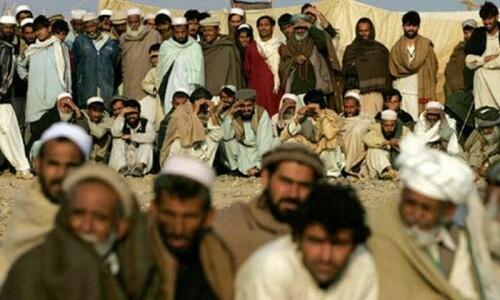UNITED NATIONS: Pakistan has rejected the Taliban takeover of the northern Afghan city of Kunduz, declaring that the occupation of any part of Afghanistan by any group was ‘unacceptable’ to Islamabad.
In his first policy statement since the Monday takeover, Foreign Secretary Aizaz Ahmed Chaudhry assured Kabul that it would not recognise any illegal move against the Afghan government.
“Afghanistan is being run by a democratically elected and legitimate government and occupation of its territory by any group is unacceptable,” the top Pakistani diplomat told a news briefing in New York.
At a White House news briefing, Press Secretary Josh Earnest hoped that Afghanistan’s neighbours would “continue to strongly support Afghan President Ghani and the National Unity government.”
Hours after the Taliban takeover, Afghanistan’s Chief Executive Abdullah Abdullah told the UN General Assembly that some of the attackers had come from outside Afghanistan.
“The presence of terrorist sanctuaries and support networks in Pakistan continue to cause trouble inside Afghanistan,” he said.
And in a meeting with tribal elders in Kabul, Afghan President Ashraf Ghani declared that Pakistan was “not a brotherly country”.
“For fourteen years we have been in an undeclared war with Pakistan and we want to end this war with your help,” he told the tribal chiefs.
But the Pakistani foreign secretary refused to respond to these allegations when asked for comments. “We should avoid this blame game and find means to a lasting solution between the two countries,” he said. “Pakistan believes that the solution to the Afghan issue lies in further cooperation between Pakistan and Afghanistan.”
Mr Chaudhry said Pakistan stood for Afghan reconciliation and a peacefully negotiated settlement of all issues. “The solution does not lie in blame game, rather it lies in cooperation,” he added.
Mr Abdullah, however, said that Afghanistan opted out of the Pakistan-backed talks in Murree when it discovered that Taliban leader Mullah Mohammed Omar had died three years ago in Pakistan. “A loss of trust can have irreparable consequences for all sides,” he said.—M.H. and A.I.
Published in Dawn October 1st, 2015
On a mobile phone? Get the Dawn Mobile App: Apple Store | Google Play
















































